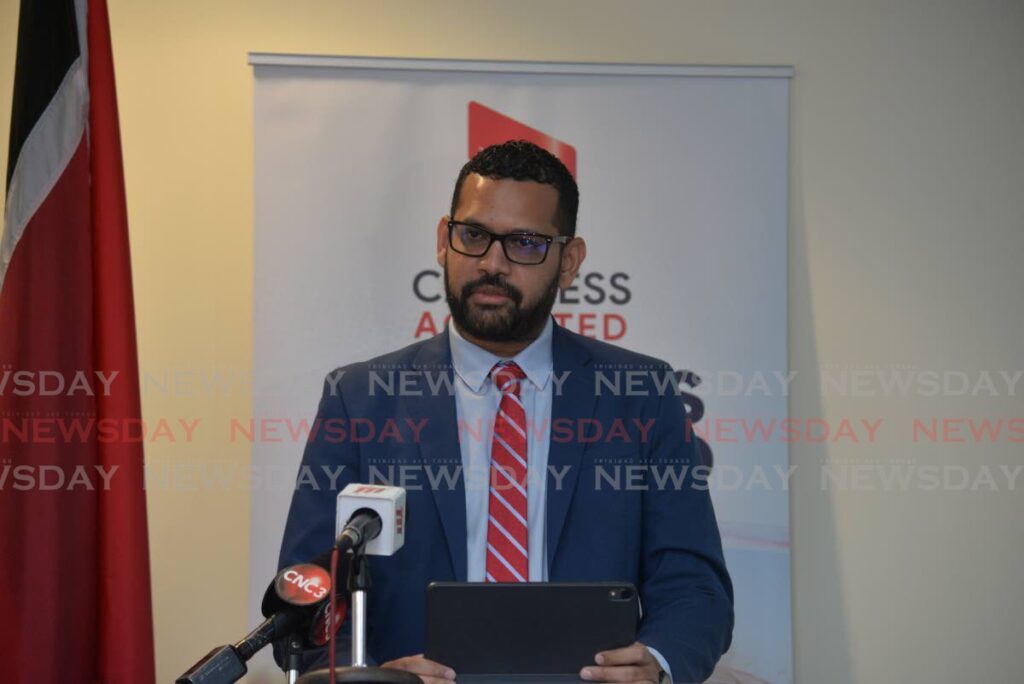Cashless TT, FinTech potential examined at stakeholder workshops

INCLUSIVITY was a focal point of stakeholder discussions at recent workshops hosted by the Trinidad and Tobago International Financial Centre in association with United Nations (UN) and European Union (EU) agencies, aimed at advancing the National Financial Inclusion Strategy (NFIS).
The NFIS outlines the government’s push for a cashless society and sees Trinidad and Tobago as a regional FinTech hub.
The TTIFC and the UN Capital Development Fund hosted their stakeholder consultation workshop this week, following the round last December.
This week’s workshop, held at the TTIFC office in Port of Spain, aimed “to propel the development of the NFIS forward, building upon the insights gathered from the (last) initial consultation workshop conducted by TTIFC,” a release from the TTIFC said.
Small business owners, credit union representatives, NGOs and government organisations participated in the workshop series aimed at advancing the NFIS.
“In the initial series, stakeholders co-drafted and consulted on high-level elements of the NFIS, including the definition of financial inclusion, vision, objectives areas, target groups, and development action plans.
“This mid-review/second workshop seeks to build and improve on the feedback from the first, ensuring that the NFIS is comprehensive and effective in meeting the needs of the citizens.”
The second round “aims to propel the development of the NFIS forward, building upon the insights gathered from the initial consultation workshop conducted by TTIFC (in December).
The TTIFC is the state agency designed to drive the adoption of financial services nationwide, particularly in pursuit of a cashless society.
It has had the support of the UN and EU agencies concerned with digital financial inclusion.
TTIFC, in its media release following the workshop, said this country “still (possesses) unrealised potential in driving towards the goal of becoming a cashless society, with obstacles such as onerous requirements and a lack of intuitive e-commerce instruments hindering progress in the digital economy.”
The body said it had dealt with these challenges by collaborating with UNCDF to conduct a national financial inclusion survey last year “the findings of which serve as the primary input for the NFIS.”
The national strategy, the TTIFC said, can address the challenges and barriers faced by the financially excluded, as identified in the survey, such as the strong correlation between education, employment, and marital status on the usage of cash and non-cash payment methods.
“By taking an evidence-based approach, Trinidad and Tobago aspires to lead the digital revolution in the Caribbean while ensuring inclusivity for all members of society.”
The TTIFC said the workshops were also strategically designed to harness the expertise and perspectives of stakeholder working groups from diverse sectors to address the current local financial landscape.
These groups included the Ministry of Finance, Ministry of National Security, Financial Intelligence Unit, National Enterprise Development Company, private sector business representatives, NGOs, FinTechs, and credit unions, all of which participated.
Speaking at the first workshop last December, Minister of Finance Colm Imbert promoted the government strategy, saying it is “intended to provide the framework to empower citizens, particularly the unbanked, with the tools and resources they need to be financially resilient.
“It is more than a plan on paper,” Imbert said. “Instead, it is an active programme to ensure that financial services are readily available to everyone, reasonably priced, and customised to meet the different requirements of various communities in Trinidad and Tobago.”

Comments
"Cashless TT, FinTech potential examined at stakeholder workshops"